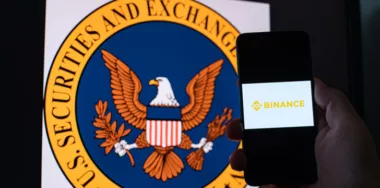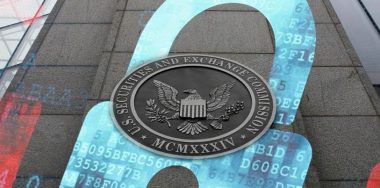| Getting your Trinity Audio player ready... |
As part of our coverage of the Crypto Crime Cartel plaguing Bitcoin, we posited that Binance, its owners and its employees had been doing more than enough to draw the same prosecutions now facing BitMEX personnel.
We pointed to the fact that Binance has repeatedly moved offices in order to stay ahead of broadening regulatory regimes around the world, something that the Financial Action Task Force is likely already investigating. We highlighted the fact that Binance has virtually zero anti-money laundering controls on its platform, the same violation of the Bank Secrecy Act which BitMEX’s employees are currently being prosecuted for, and that this non-compliance has likely led to hundreds of millions of dollars’ worth of criminal funds being laundered on their platform.
Right on cue, leaked documents obtained by Forbes show that Binance has a comprehensive plan to undermine the ability of anti-money laundering and sanctioned enforcement agencies to detect illegal activity being committed by Binance directly and that which is enabled by the cryptocurrency exchange, including keeping Binance personnel outside of the U.S. to stay out of the reach of law enforcement.
According to the plan, Binance has intended to deceive regulators and law enforcement by setting up a pseudo-compliant corporate entity in the U.S. to draw attention away from Binance’s illegal activity while surreptitiously funnelling profits back to Binance, which it intends to keep non-compliant and yet still continue to offer its services to U.S. residents through workarounds.
In brief, Binance was considering a strategy which would entail:
- The direct undermining of ‘anti-money laundering and U.S. sanctions enforcement’ to detect illegal activity
- Establishing a U.S. entity to act as a ‘magnet’ for U.S. regulators looking into Binance to obscure Binance illegally serving U.S. investors
- Using the U.S. entity to engage with regulators and other pro-regulation interest groups to provide a smokescreen for the illegal activity of the parent company
- Surreptitiously funnel funds from the U.S. entity to the global Binance entity through a network of companies which would obscure Binance as the legal parent company, which would bring overseas Binance personnel within the reach of law enforcement
- The promotion of VPN technology so that U.S. investors can still access the global Binance platform
Leaked documents show flagrant attempt to undermine law enforcement
The document was apparently presented to Changpeng Zhao in Q4 2018 by Jared Gross, Binance’s lawyer and mergers and acquisitions manager. Cynically titled the ‘Tai Chi’ strategy – Tai Chi is a martial art which teaches practitioners to use their opponent’s own weight against them – the document exposes an institutional bent toward digital asset crime and the great steps that Binance is willing to consider in order to continue to profit from illegal money laundering and more.
The goal of the strategy is stated to be enforcement mitigation and it explicitly points toward the need to undermine the ability of U.S. anti-money laundering and sanctions enforcement agencies to be able to detect illegal activity. Incredibly, the proposal itself begins with the following bullet point:
‘Key Binance Personnel continue to operate from non-U.S. location to avoid enforcement risks’
In our first coverage of Binance and Changpeng Zhao’s illegal activity, we pointed out Binance’s strategy of moving from jurisdiction to jurisdiction in order to escape regulatory regimes that would render their illegal business model useless, and this has now been confirmed to be a key part of Binance’s strategy considerations.
The establishment of the new U.S. entity—the Tai Chi entity—forms a key part of this strategy. The company is designed to act as a buglight for U.S. enforcement looking to examine Binance’s activities. The offering of leveraged digital asset derivatives is highly regulated in the U.S., so the plan is to have the U.S. entity not offer these products and thus able to compliantly remain outside the scope of regulators, while directing potential U.S. customers to the global site by teaching them to evade Binance’s own geoblocking measures. It plans to use a network of intermediary companies to funnel revenue from the U.S. business back to the parent company without a formal parent-subsidiary corporate structure in an effort to prevent regulators to hold the parent company accountable.
The document also reveals a strategy to use the new U.S. entity to build relationships with regulators such as the Securities and Exchange Commission and the Commodities Futures Trading Commission by engaging with them on compliance issues and over-applying for approvals, which the plan makes clear Binance has no expectation of succeeding. The sole purpose of these approvals is to superficially reassure regulators, or so it is hoped.
This is part of a wider guerrilla campaign to lull regulators into a false sense of security regarding Binance, which would include joining pro-regulatory digital asset interest groups to further give the illusion that compliance is Binance’s priority. At least one instance of this, Binance’s joining of the Blockchain Association, caused founding member Coinbase to resign from the Association due to concerns that Binance was illegally serving U.S. investors.
The plan represents a flagrant disregard for the vast efforts by U.S. (and global) law enforcement to curb the rampant illegal activity being carried out or enabled by exchanges like Binance. This confirms that Binance, led by Zhao, is deliberately evading compliance and actively undermining attempts at enforcement by U.S. agencies solely so that it can continue to profit on the vast amounts of illegal activity taking place within the digital asset world.
Binance setting plans into motion
While this was apparently one of a few plans proposed by Binance personnel, we can infer that at least part of it was adopted by Zhao: one of the strategies for misleading U.S. law enforcement was to participate in the U.S. Department of Homeland Security’s Cornerstone Program, which is designed to detect weaknesses in financial systems. The Department confirmed to Forbes that Binance did indeed participate in the program.
The plan also lines up perfectly with everything we already know about Zhao and Binance.
Zhao has closed, opened, reclosed and reopened shop to stay ahead of critical regulations which would extinct Binance’s business model, and is on-record with the preposterous suggestion that Binance has no office ‘because Bitcoin doesn’t have an office’. According to this proposed strategy, such tactics are a foundational part of Binance’s plans going forward.
Zhao has also been an outspoken proponent of the use of VPNs (he called the use of VPNs a necessity in a now-deleted tweet), which we now see is part of a wider strategy to influence U.S. investors to circumvent geoblocks so that they can invest their money into Binance.
While outrageously brash, Binance’s apparent plan to mislead regulators into following the pseudo-compliant U.S. entity into a rabbit hole is the same cynical strategy we have seen Zhao and Binance use to attack Bitcoin’s pro-regulatory philosophy and stance. Remember, Zhao collaborated with Roger Ver to get Bitcoin SV delisted from a number of exchanges, including Binance itself.
Here’s what should be most concerning of all to the digital asset community: if these are the kinds of strategies that Changpeng Zhao and Binance’s personnel are willing to put on paper, what else is this cartel of anti-regulation and anti-law enforcement criminals doing?
As Binance is apparently already under the microscope for allowing hundreds of millions of dollars’ worth of money laundering to take place on its platform, one would hope that the leaked documents bring even more attention to the crypto crime cartel and the damage they are doing to the legitimate digital asset community.
But it bears repeating: the employees of these cynical, criminal organisations have a moral and legal responsibility to cease enabling this criminal activity and help law enforcement bring an end to the money laundering, market manipulation, disinformation and RICO behaviour being carried out on and by the Binance platform. Fail to do that, and those employees risk joining Zhao in the inevitable indictments, just as the BitMEX indictments went well beyond the figurehead. Binance’s attempt to hide overseas in order escape justice is futile: in the words of FBI Assistant Director of speaking of BitMEX’s false belief that being incorporated in the Seychelles would save them:
“They will soon learn the price of their alleged crimes will not be paid with tropical fruit, but rather could result in fines, restitution, and federal prison time.”
Follow CoinGeek’s Crypto Crime Cartel series, which delves into the stream of groups—from BitMEX to Binance, Bitcoin.com, Blockstream and Ethereum—who have co-opted the digital asset revolution and turned the industry into a minefield for naïve (and even experienced) players in the market.
New to blockchain? Check out CoinGeek’s Blockchain for Beginners section, the ultimate resource guide to learn more about blockchain technology.








